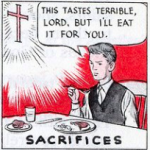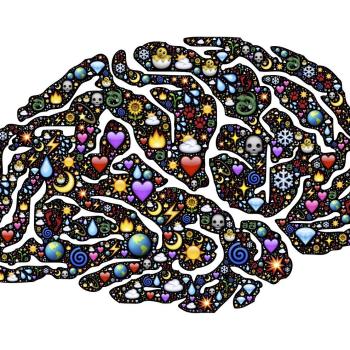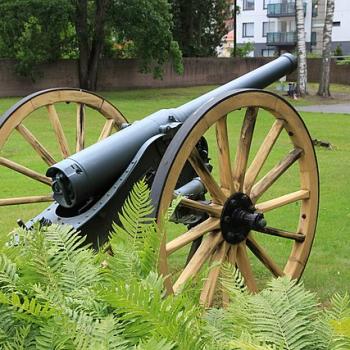Every year on the Saturday after Thanksgiving my wife and two daughters, along with my large extended family, put on layers and layers of warm clothes and head down to Main Street in Boonton, New Jersey to watch the town's annual Christmas parade.
The parade usually includes local Girl Scout troops, a few small bands, representatives from the local historical society dressed in period costumes, plenty of firetrucks, and a host of Boonton residents walking the streets in Elmo, Scooby-Doo, and Mickey Mouse costumes. The highlight, of course, is the arrival of Santa Claus.
The festivities are nothing to write home about. There are no fancy bells and whistles. But the parade does serve as a celebration of the life of a particular community in a particular place.
Boonton was the site of an 18th-century iron works and has always been a working-class town. My family arrived there sometime in the early 20th century as part of the wave of eastern European immigration that would redefine the ethnic make-up of the community. My grandparents were long time members of St. Cyril & Methodius Church, a Catholic parish founded in 1906 to accommodate Slovakian immigrants. My parents were married in this church and I have attended numerous baptisms, weddings, and funerals there. My mother and five of her six siblings, and many of my first cousins, are proud graduates of Boonton High School.
Technically, I did not grow up in Boonton. In the 1960s my parents bought a house near the border of Boonton and Montville Township. Though I attended school in Montville, I still lived within the orbit of the old iron town. (My parents still have a Boonton zip code).
Main Street in Boonton was the center of my economic world. I got my first pair of sneakers at Zandel's Shoes. I got my hair cut at Carlos's Barbershop. I bought school clothes at The Laurie Shop. My first baseball glove was purchased at Marcello's Sporting Goods. I saw my first movie -- The Life and Times of Grizzly Adams -- at the town's historic movie theater. When my brothers and I got older we would ride our bikes into town to buy baseball cards at Newberry's 5 &10 and get a slice of pizza at Roma's.
Most of these stores no longer exist. Like Main Streets throughout America, family-owned stores have been driven out of business by malls and big box stores. I remember how excited we all were in 1977 when a shopping mall opened in nearby Rockaway. I guess we were too young to see the effect that this mall would have on Main Street's small business owners.
Recently I have been encouraged by reports that the town is trying to make a comeback. This year's parade included a group of men and women who were part of a movement to restore and preserve Boonton's historical downtown district. If I still lived in the town I might consider joining this movement. Over the years I have developed a special affection for this place.
Boonton is just one example of the thousands of real places, populated by real people, struggling to survive in our placeless society of box stores, airports, and cyberspace. It is easy to dismiss concerns about the world of Mom and Pop shops, local commerce, and face-to-face community as mere nostalgia for a bygone era that will never return. Fair enough. But it is the job of the historian to make people aware of the things that have been lost.
The insatiable American appetite for progress has crippled local economies and the kinds of communities that these economies helped to foster. The Boonton of my childhood had a moral economy -- a small-scale capitalism that was built on trust, reputation, and a general commitment to the common good. Such an economy allowed opportunities for generosity, conversation, and friendship.
I vividly remember Marcello's working out a payment plan with my father so that he could buy trophies for our championship 6th grade basketball team. Carlos's Barber Shop was always filled with local men sharing the latest in town news and gossip. A trip to Main Street would inevitably result in a sidewalk encounter with a friend or extended family member.
The fate of towns like Boonton should be of particular interest to Christians. In his recent book, To Change the World, University of Virginia sociologist James Davison Hunter exhorts Christians to practice what he calls "faithful presence." Such "faithful presence" is incarnational. It is, as Hunter puts it, a "theology of commitment." It recognizes that the God of the Bible has always worked in particular places. It connects human flourishing with the nurture and cultivation of the communities where God has placed us.
Hunter concludes that Christians can be effective witnesses in the world by investing their time, talent, and energies in communities, towns, and neighborhoods. It is in these kinds of places where we "learn forgiveness, and humility, practice kindness, hospitality, and charity, grow in patience and wisdom, and become clothed in compassion, gentleness, and joy." In other words, when we invest in a particular place we grow spiritually.
What are we doing to help create or recreate spaces of human interaction that allow God to work in our lives and the lives of our neighbors? How are we contributing to a virtuous society where people think more about the common good than they do about their own self-interest? How are we serving the needs of the places where we live?
Attending the local Christmas parade is a start. But until we are willing to learn more about the people, the history, and the landscape of the communities where we live, the revitalization of places like Boonton will be difficult. We have a long way to go.
12/1/2010 5:00:00 AM





